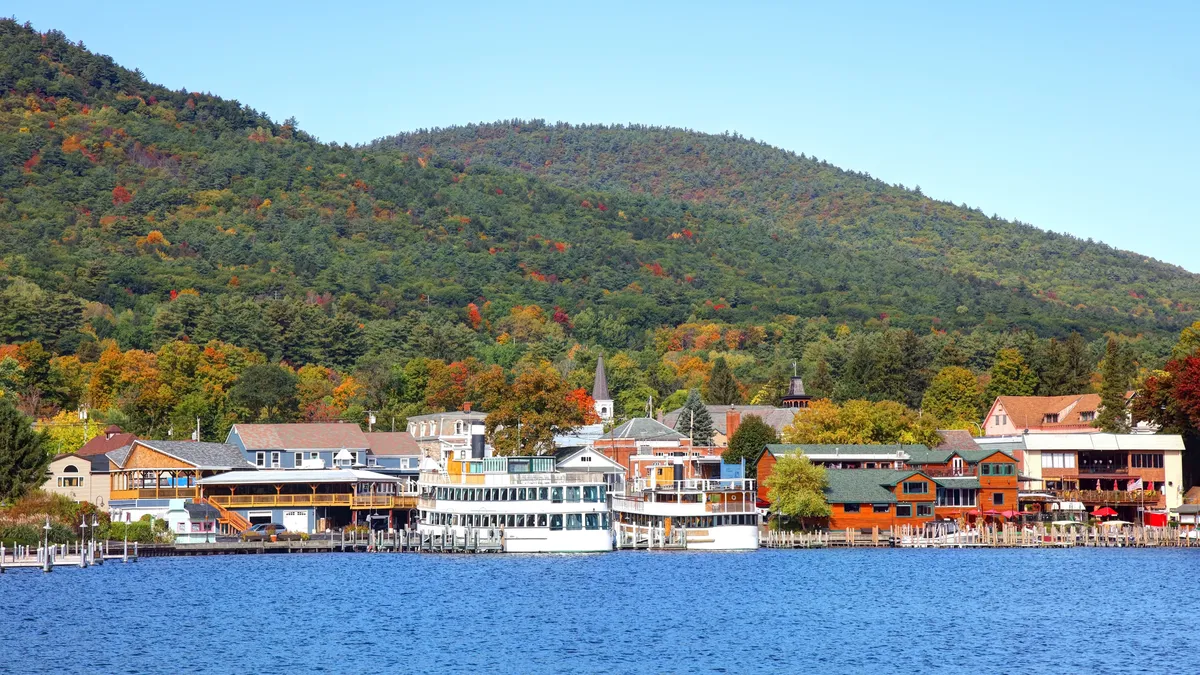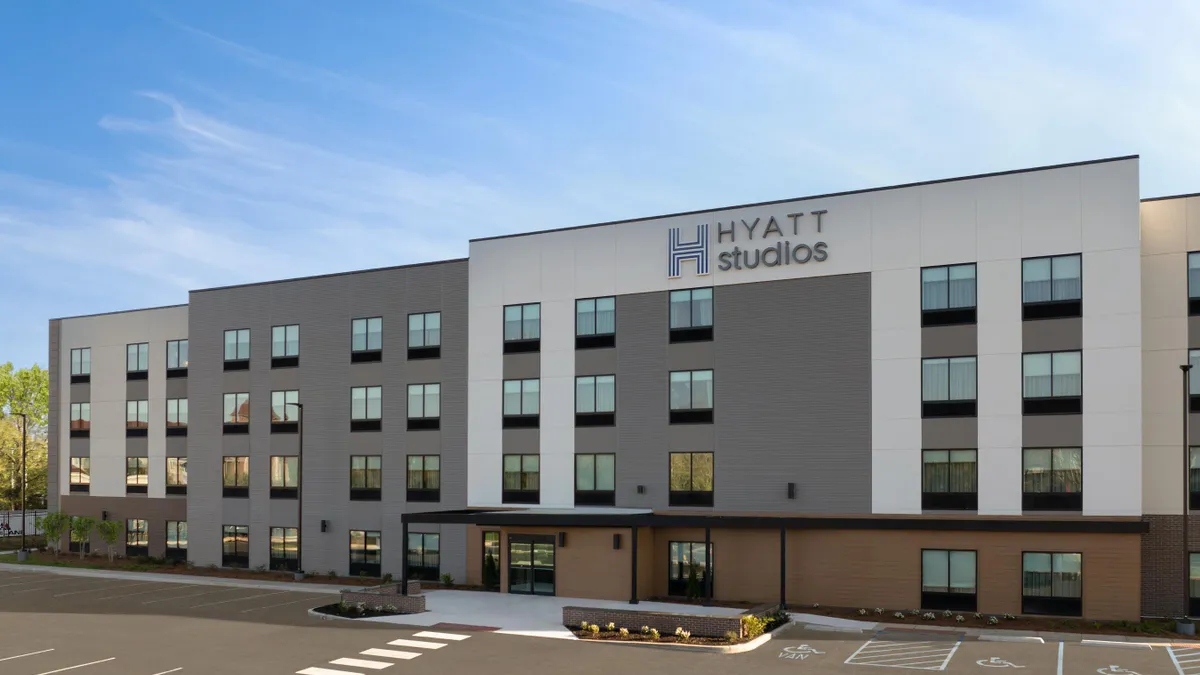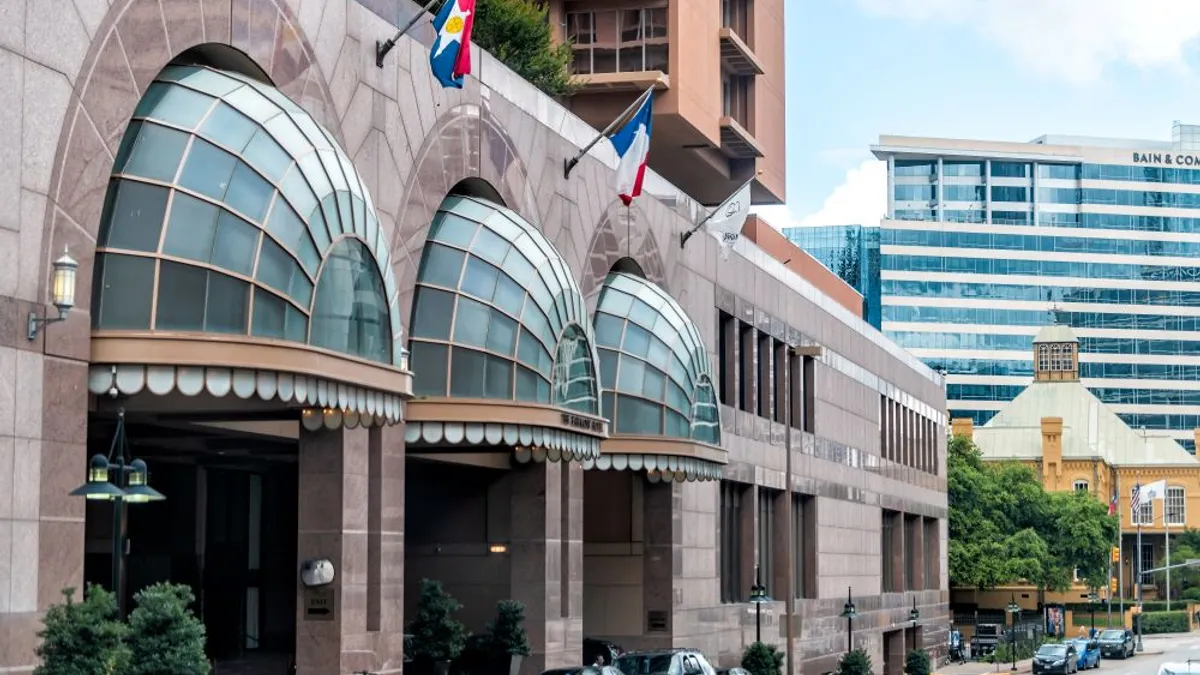When Hilton announced plans to acquire the Graduate Hotels brand for $210 million yesterday, it wasn’t exactly a surprise.
Bloomberg reported that the company was considering a deal in February. And though Hilton President and CEO Chris Nassetta declined to comment on the speculation in a fourth-quarter earnings call, he said, “Never say never.”
Graduate Hotels operate in U.S. college towns, except for two U.K. properties. The Nashville-headquartered brand has grown in recent years to 37 properties, and Hilton has plans to grow it further: Upon the acquisition’s announcement, Nassetta commented that “the addressable market for the Graduate brand is 400-500 hotels globally.”
But Graduate isn’t the only brand expanding in college towns. Experts told Hotel Dive that the markets can be more stable than others of a similar size — even if they present unique challenges.
A unique appeal
“These communities that are supported by large universities are essentially recession-proof,” Gary Brandeis, CEO of Scholar Hotels, which specializes in properties that are on or near college campuses, told Hotel Dive. “If you look at the ups and downs of an economy, college towns that are supported by big public universities don't go through those cycles.”
According to a 2016 study by John O’Neill, professor and director of Penn State’s Hospitality Real Estate Strategy Group, lodging demand is more stable in college towns than in many other markets.
“[Lodging demand] fluctuates less than both similarly sized towns, and compared to national averages. That stability is in terms of both occupancy percentage and average daily rate, and means hotel investment in university towns is relatively low risk, all things considered,” O’Neill told Hotel Dive last month. “Universities almost never close — that’s true even during COVID.”
Meanwhile, school sporting events, in particular, can justify “sky-high ADRs at 100% occupancy levels,” according to a 2017 report from hospitality sales consulting firm The Plascencia Group.
These factors have led to a growing number of hospitality brands looking to tap college town demand, specifically.
Study Hotels, which began with a property servicing visitors to Yale University in New Haven, Connecticut, has since expanded to locations by the University of Pennsylvania in Philadelphia; the University of Chicago in Chicago and Johns Hopkins University in Baltimore. And Scholar Hotel Group operates near Penn State University in State College, Pennsylvania; West Virginia University in Morgantown, West Virginia; and Syracuse University in Syracuse, New York.
In September, Travel + Leisure Co. and Sports Hospitality Ventures announced plans to bring Sports Illustrated Resorts to college towns in the U.S., the first of which is slated to open in Tuscaloosa, Alabama, in 2025.
“We think that there is an underserved need for upscale accommodations in many of these communities, and our concept will help fill that need,” Geoff Richards, chief operating officer of vacation ownership at Travel + Leisure Co., told Hotel Dive, noting that there are “roughly 350 Division 1 colleges in the U.S.”
But hospitality providers with wider distribution are hoping to capitalize on college town demand, too.
“We are attracted to college and university-anchored markets due to their stable demand patterns and extensive workforce population,” said Mike Wilbert, senior managing director and head of acquisitions at Mission Hill Hospitality, which added two college town hotels to its portfolio last summer: one a Residence Inn by the University of Alabama in Tuscaloosa, Alabama, and the other a Home2 Suites by Hilton near Virginia Tech in Blacksburg, Virginia.
According to Wilbert, predictable academic calendars and events “allow for more accurate forecasting of demand and strategic revenue management.”
We do really well [on football weekends], but that's not enough to make our investments in our hotels successful.

Gary Brandeis
CEO, Scholar Hotel Group
Plus, he said, “investments in infrastructure, whether by state or local governments, or private companies, support ancillary businesses in the market and increase demand beyond the college or university.”
College town challenges
There are pitfalls to college town markets, however. For one, demand can vary greatly throughout the year — though Brandeis said the idea that a college town hotel has to make all its money on football weekends is a misconception.
“We do really well [on football weekends], but that's not enough to make our investments in our hotels successful,” he said. “We have to be busy 50 weeks a year.”
Brandeis said the slowest time of year is usually around the university’s winter break, but in the case of major universities, there’s still plenty of activity otherwise to sustain hotel activity — “a lot more than just big football games.” A large university like Penn State, he said, gets more than 100,000 applicants a year — many of whom visit.
Meanwhile, Wilbert noted university funding as a challenge that can impact nearby hotel demand. “Universities may be overly dependent on federal or state spending programs that support enrollment growth, tuition assistance, and infrastructure build-out,” he said.
Overall, Brandeis thinks Hilton’s acquisition of Graduate is a good sign.
“It helps validate the fact that these college markets are real markets people are interested in,” he said. “If Hilton’s willing to spend $210 million to make sure they have a foothold in the market, that makes me feel good about our business plan.”



















